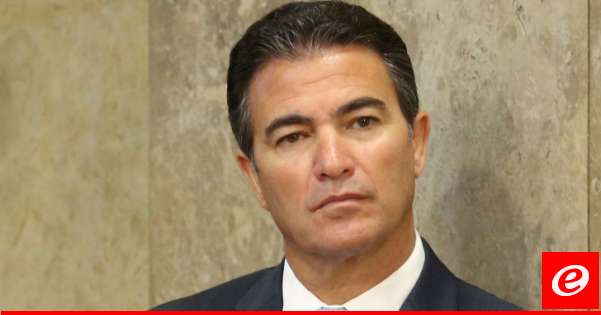Military oversight in the Israeli army has put a complete silence on the details of the expulsion of former Mossad foreign intelligence chief Yossi Cohen from the Democratic Republic of the Congo in 2019 (he was president at the time until his retirement in 2021). Although it only allowed the publication that Cohen visited this country three times, without prior approval from the local authorities, and that on the third visit he was expelled by direct order of the President of the Congo, Felix Tshisekedi, who also informed him that he was “persona non grata and that he was no longer should come to the country. Congo”.
Senior security sources said, according to economic newspaper The Marker, that Cohen visited the Congo at the time with Israeli billionaire Dan Gertler, who is suspected by British, American and Swiss authorities of paying a $360 million bribe in exchange for the rights. mine coal in the Congo.
Since late 2017, Cohen has pushed for the lifting of U.S. sanctions against Gertler. While Israeli intelligence officials defended Cohen’s visits and considered them “the highest national security interest,” other sources told the paper, “His purpose was not, and one could say it is far from a national security interest.” And he considered the purpose of the visits “problematic, causing controversy and even suspicion and suspicion.” It claimed that Prime Minister Benjamin Netanyahu approved the visits at the time, but it is not clear if the Cabinet Office of Political and Security Affairs or another body was approved. She noted that “one of the potential winners of Gertler’s lifting of sanctions is his lawyer, Boaz Ben-Zur, who is also Netanyahu’s lawyer.”
When the newspaper attempted to investigate the matter, the censor informed it that he had issued an order forbidding the publication of any details. The newspaper indicated that information obtained from several Israeli security officials showed that Cohen met during his three visits with President Teddel Tshisekedi. In the first, he was asked for permission to meet with former President Joseph Kabila to obtain important information about Israel’s special interest. The President agreed. He told him that his friend Gertler knew Kabila well and that the meeting would be mostly human. Tshisekedi agreed, although he saw Kabila as a staunch opponent.
The second visit also included a meeting with Kabila. Those around President Tshisekedi began to question Cohen’s motives, and even some of the president’s advisers expressed fear that Cohen was helping Kabila arm himself to stage a coup against the government. These doubts were intensified when Cohen came for the third time, he was present with a large delegation and met with Tshisekedi in his office, but this time he refrained from making prior arrangements before the visit. Subsequently, President Tshisekedi jumped up impatiently, listening to Cohen utter general slogans about cooperation between the two countries, but nothing to the point. The President asked everyone in the room to leave except for Cohen. When they were alone, the president asked him to go straight to the airport, accompanied by local security officials, and leave the Congo and not return to it.
Following this publication, diplomatic sources in Tel Aviv said that Cohen and his colleague, then-Israeli Ambassador to Washington Ron Dermer, were exerting pressure on the administration of former US President Donald Trump, especially on the interior secretary. Treasury Secretary at the time, Steven Mnuchin, to freeze the sanctions imposed on Gertler and his business. The sanctions were effectively frozen five days before the end of Trump’s term, and the move was not officially announced, other than a letter sent to Gertler’s lawyer, according to which it could be presented to banks to stop the freezing of Gertler’s account. But the administration came back and lifted the freeze during Biden’s tenure as Treasury Secretary Janet Yellen.
According to the publication, many Mossad officials are trying to find out why Cohen was involved in this case, and describe his behavior as “madness.” The newspaper added that Mossad officials “interpret his behavior as, at best, extreme arrogance.”
During his tenure in December 2016, Cohen was reportedly subjected to a preliminary investigation for alleged political corruption against him, centered on his relationship with Australian billionaire James Packer, who is close to the family of Israeli Prime Minister Benjamin Netanyahu. Before that, it became known about the relationship between Packer and Netanyahu’s son Yair Netanyahu. He retired in 2021.
Source: El Nashra
